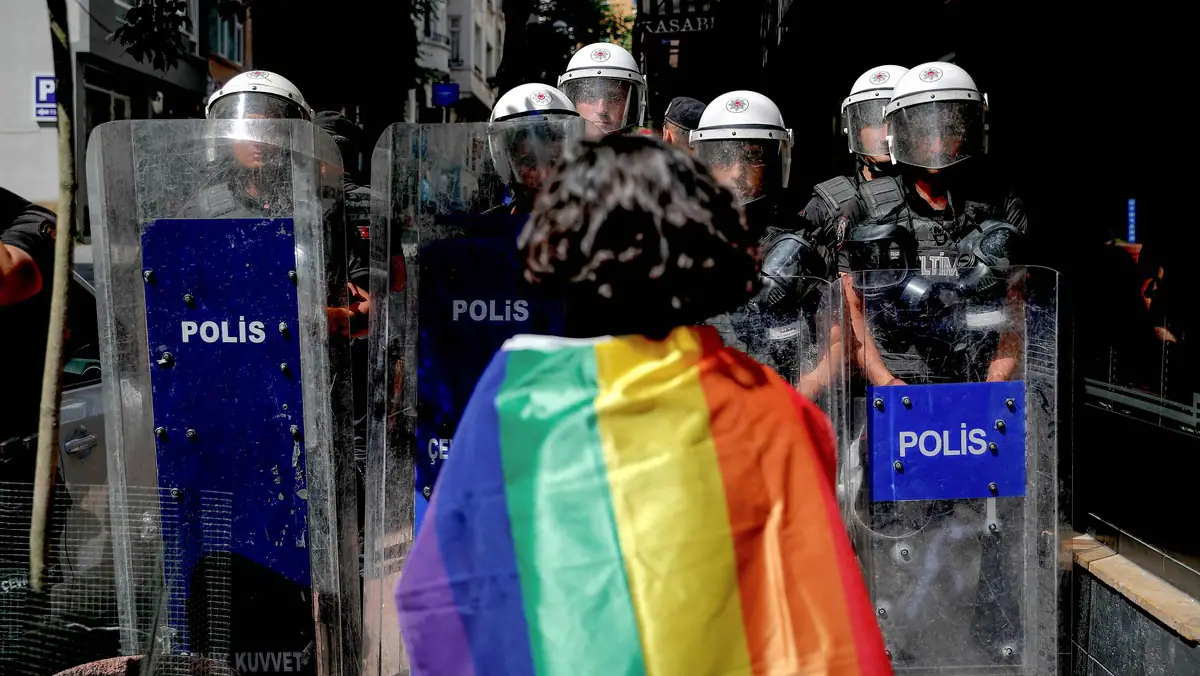Turkish police thawed again on Sunday at the LGBTQ+ Pride March in Istanbul, ruthlessly arresting more than 200 people, activists and journalists, including an AFP photographer.
Even before the march began, riot police carried out the first violent raid on several bars and on the streets of Cihangir district, around the emblematic Taksim Square, arresting people who were there “randomly”, according to AFP.
According to the count of the organizers of the march, about 200 people were arrested in several waves and their release began gradually in the early evening.
The NGO Kaos GL, which campaigns for the promotion and protection of LGBTQ+, previously counted “more than 150” arrests in the afternoon.
Amnesty International called for “immediate and unconditional release” on Twitter.
As every year now, the Pride March was officially banned by the city’s governor, but hundreds of protesters waving rainbow flags gathered in the streets adjacent to Taksim Square, which is completely closed to the public.
Chanting “The future is freak!” , “You’ll never be alone!” or “We’re here, we’re gay, we’re not going anywhere else!” Then, the demonstrators marched for a little more than an hour through the streets of Cihangir district, with the support of the residents at the windows.
An AFP videographer said the detainees were in police cars heading to Istanbul’s main police station.
“They try to ban us, prevent us, discriminate against us and even kill us every minute of our existence,” Deren, 22, told AFP.
“But today is an opportunity to stand up for our rights, and shout that we exist: you will never be able to stop gays,” adds Derin, using a term that denotes any form of sexual change and refutes the biological definition of gender.
According to a number of witnesses, the police tried to prevent the press from filming the arrests.
Bulent Kilic, an experienced and award-winning AFP photographer familiar with conflict areas, was handcuffed behind his back, stripped of his shirt, and put into a police truck with others.
He was arrested last year in the same circumstances.
Via Twitter, the journalist defense organization Reporters Without Borders lamented that Turkish authorities “apparently used to detain AFP photojournalist Bulent Kılıç”.
Despite the three convictions handed down by the Constitutional Court over the past three years, security forces continue to commit violent acts and arbitrary arrests against journalists. Unfortunately, the administration is accustomed to ignoring court decisions or the law,” added its representative Erol Onderoglu.
After a spectacular parade in 2014 attended by more than 100,000 people in Istanbul, the Turkish authorities officially banned the Pride March year after year for security reasons.
On Friday, the European Commissioner for Human Rights, Dunja Mijatovic, called on the “Istanbul authorities to lift the ban in force on the Pride March and to ensure the safety of peaceful demonstrators.”
“Human rights of LGBT people must be protected in Turkey,” she added, and called for “an end to[their]stigma.”
Homosexuality, which has been criminalized in Turkey since the mid-19th century (1858), is not outlawed, but remains largely subject to contempt and social hostility from the conservative Islamist party, the Justice and Development Party, and the government of President Recep Tayyip Erdogan.
A minister once described homosexuals as “crazy”.
In 2020, the Netflix platform was forced to abandon the production of a series in Turkey because it presented a gay character and did not get the green light from the authorities.
That same year, French sports equipment and apparel brand Decathlon was the subject of calls for a boycott in Turkey for conveying messages of support for LGBTQ+ communities in its campaigns.

“Extreme twitteraholic. Passionate travel nerd. Hardcore zombie trailblazer. Web fanatic. Evil bacon geek.”


